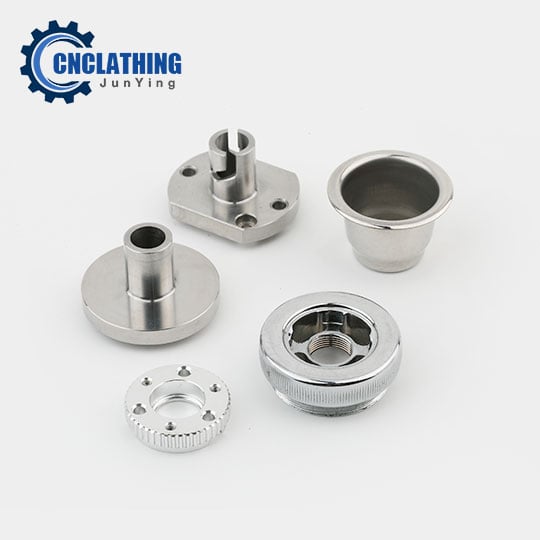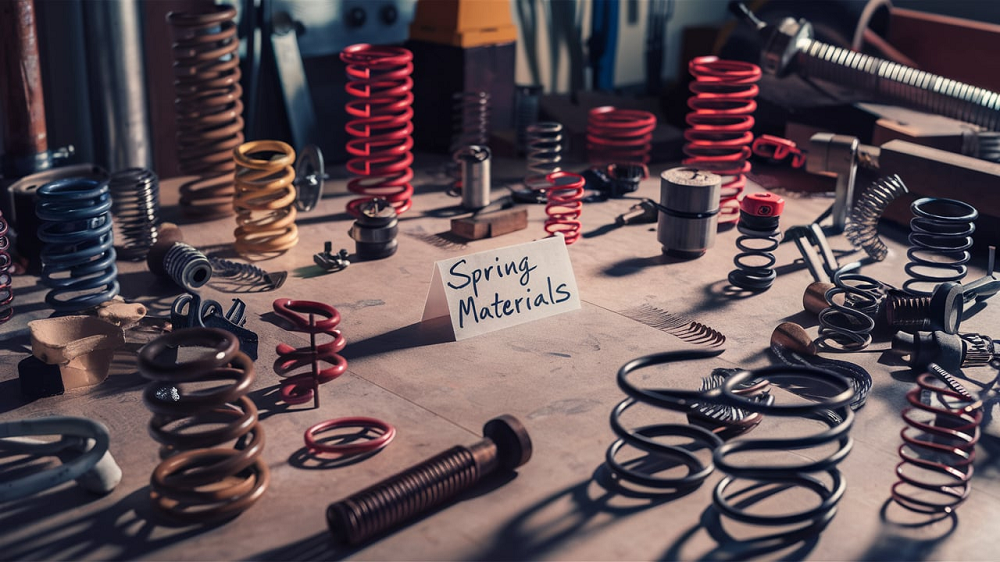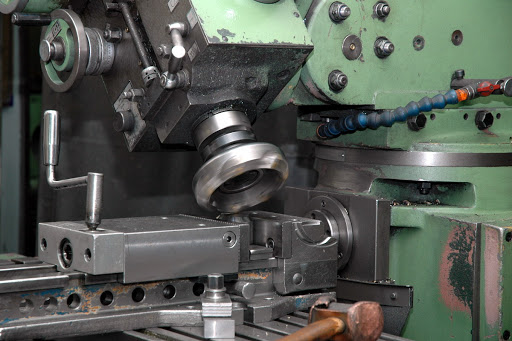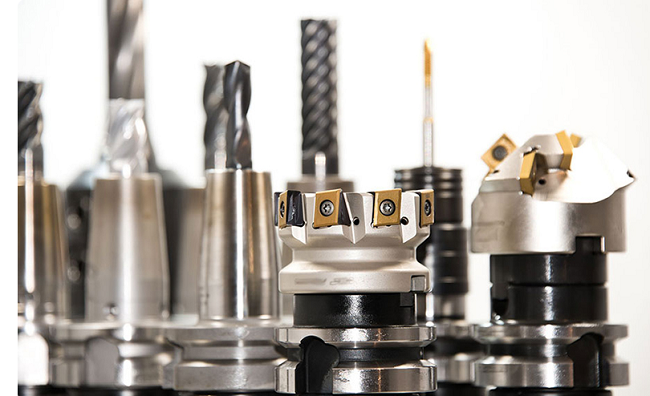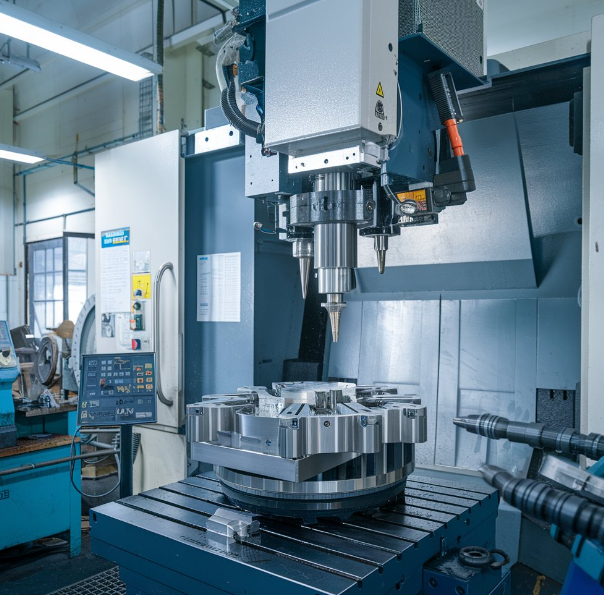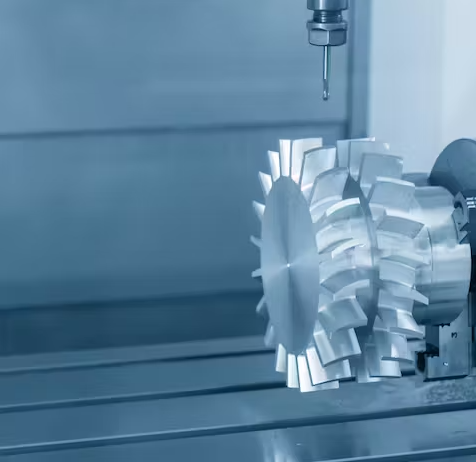CNC Milling 304 Stainless Steel Components – Flange
CNC milling 304 stainless steel components – flange provided by CNClathing.com – experienced CNC machining services China supplier with rich expertise. Stainless steel 304, also known as A2, is the most commonly stainless steel, it’s the austenitic stainless steel with a lower carbon composition, has excellent mechanical properties and good machinability, resistant to corrosive media and most environments, widely used in high-temperature environments and is versatile and to be used in a variety of fields. The 304 stainless steel CNC machined parts used for machinery are treated with the passivation process, passivation of stainless steel will make the parts more rust-resistant by removing free iron from the surface. Our CNC stainless steel milling services can provide not only flange machining but also various customized products as your design or drawings.
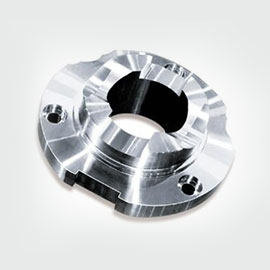
304 Stainless Steel Properties
| Property | Metric | English |
|---|---|---|
| Hardness, Brinell | 123 | 123 |
| Hardness, Knoop | 138 | 138 |
| Hardness, Rockwell B | 70 | 70 |
| Hardness, Vickers | 129 | 129 |
| Tensile Strength, Ultimate | 505 MPa | 73200 psi |
| Tensile Strength, Yield | 215 MPa (Strain 0.2%) | 31200 psi (Strain 0.2%) |
| Elongation at Break | 70% | 70% |
| Modulus of Elasticity | 193 GPa | 28000 ksi |
| Poissons Ratio | 0.29 | 0.29 |
| Shear Modulus | 77.0 GPa | 11200 ksi |
| Thermal Conductivity | 16.2 W/m-K (0 – 100°C) | 112 BTU-in/hr-ft²-°F (32-212°F) |
| 21.5 W/m-K (500°C) | 149 BTU-in/hr-ft²-°F (932°F) | |
| Melting Point | 1400 – 1455°C | 2550 – 2651°F |
| Solidus | 1400°C | 2550°F |
| Liquidus | 1455°C | 2651°F |
Is 304 Stainless Good for Machining?
Grade 304 stainless steel, while offering excellent corrosion resistance and good value, presents both advantages and challenges for machining operations. As the most common stainless steel globally, it provides good machinability but requires specific considerations during the machining process due to its work-hardening characteristics and low thermal conductivity. To achieve optimal results when machining 304 stainless, operators should maintain sharp cutting edges, make deep enough cuts to prevent work hardening, employ chip breakers for swarf management, and use abundant coolants and lubricants to manage heat concentration at cutting edges. While CNC machining has made working with 304 more precise and efficient, its high-strength properties still demand careful attention to proper machining techniques.
Why Choose 304 Stainless Steel Flanges?
Corrosion Resistance
- Significantly reduces the $9 billion annual cost impact of corrosion in U.S. oil pipelines
- Superior resistance compared to carbon steel alternatives
Versatility & Adaptability
- Can be enhanced with nickel, nitrogen, or molybdenum
- Available in standard dimensions for various environments
- Suitable for multiple applications
Structural Benefits
- Provides superior strength at system connection points
- Can be reinforced with titanium or molybdenum
- Withstands extreme conditions (500-800°C) depending on grade
Cost-Effectiveness
- Long service life with minimal maintenance
- Durable and reliable performance
- Natural corrosion resistance without additional coating
Environmental Advantages
- Highly recyclable (50% domestic production from recycled materials)
- No need for protective coatings
- Environmentally responsible choice
Practical Benefits
- Easy maintenance and inspection
- Simple cleaning procedures
- Excellent for high-pressure applications (up to 40 m/s)
Advantages of Our CNC Milling 304 Stainless Steel Components
– Outstanding precision and accuracy
– Raised productivity and optimized production lines
– Versatility, durability, and guaranteed quality
– Short lead time and fast delivery speed
Specifications of CNC Milling 304 Stainless Steel Components
| Material | 304 Stainless Steel |
| Tolerance | +/-0.002mm |
| Surface Treatment | Anodizing, chrome plating, silver plating, polishing, galvanized, electroplating, passivation, powder coating, spraying, painting, etc |
| Main Process | CNC Machining, turning, lathe, milling, drilling, grinding, boring, stamping, threading, tamping, EDM, wire walking, laser cutting, laser marking, NC bending, and surface treatment |
| Quality Control | Strictly Quality control in the whole process, from material to packing Industry CT scanning, 3D projector, X-ray technology, Coordinate-measuring machine |
| Usage | Machinery |
| Customized Drawings | Auto CAD, JPEG, PDF, STP, IGS, and most other file formats are accepted |


